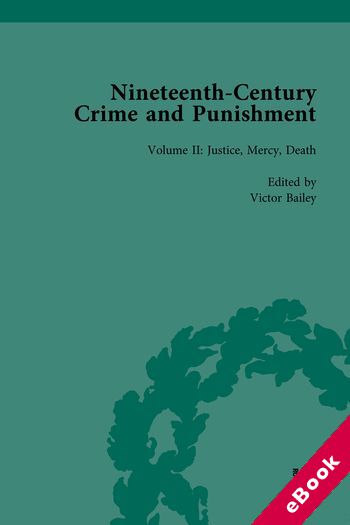
The device(s) you use to access the eBook content must be authorized with an Adobe ID before you download the product otherwise it will fail to register correctly.
For further information see https://www.wildy.com/ebook-formats
Once the order is confirmed an automated e-mail will be sent to you to allow you to download the eBook.
All eBooks are supplied firm sale and cannot be returned. If you believe there is a fault with your eBook then contact us on ebooks@wildy.com and we will help in resolving the issue. This does not affect your statutory rights.
This four volume collection looks at the essential issues concerning crime and punishment in the long nineteenth-century. Through the presentation of primary source documents, it explores the development of a modern pattern of crime and a modern system of penal policy and practice, illustrating the shift from eighteenth century patterns of crime (including the clash between rural custom and law) and punishment (unsystematic, selective, public, and body-centred) to nineteenth century patterns of crime (urban, increasing, and a metaphor for social instability and moral decay, before a remarkable late-century crime decline) and punishment (reform-minded, soul-centred, penetrative, uniform and private in application).
The first two volumes focus on crime itself and illustrate the role of the criminal courts, the rise and fall of crime, the causes of crime as understood by contemporary investigators, the police ways of ‘knowing the criminal,’ the role of ‘moral panics,’ and the definition of the ‘criminal classes’ and ‘habitual offenders’. The final two volumes explore means of punishment and look at the shift from public and bodily punishments to transportation, the rise of the penitentiary, the convict prison system, and the late-century decline in the prison population and loss of faith in the prison.